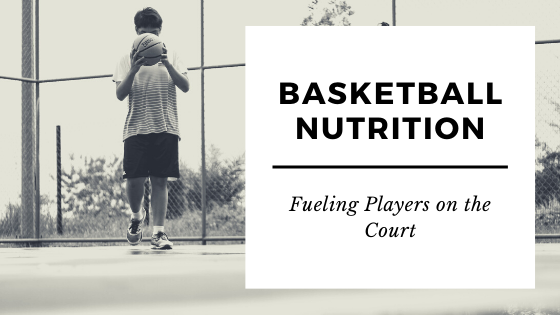Basketball is a rigorous sport that requires a lot of energy expenditure, and, therefore, an adequate intake of macronutrients (proteins, carbohydrates, and fats). This is particularly the case during the off-season where athletes also train in the weight rooms more frequently. As a result, increased caloric intake along with a good balance of protein, carbohydrates, and fat is imperative.
Many elite college and professional athletes have access to nutritionists and a greater means to ensure good nutrition; more so than smaller schools with less access to this luxury. The average caloric needs of high school level athletes are approximately 3,500 to 4,600 calories a day.
Firstly, the preferred source of fuel for a high-intensity sport such as basketball is typically carbohydrates, which are stored as glycogen in skeletal muscle tissue. It is important for athletes to consume a high-carb meal of at least 300 grams prior to a morning practice in order to provide fuel for the body. This is particularly advantageous to players because glycogen is needed to jump, run, and sprint at a high level. If athletes do not consume enough carbohydrates, then they risk the chance of overtraining and injuring themselves. Typically 5–7 (and up to 10) g/kg per body weight of carbs will suffice.
Secondly, proteins are important for building and maintaining muscle mass. Many athletes will often support this with protein supplements. While these may be useful, typically, they are unnecessary because adequate protein intake can be met through regular meals. Good sources of protein include chicken, beef, turkey, or fish. Research shows that a protein intake of 1.8 g/kg per body weight is the upper limit for muscle protein synthesis.
Thirdly, energy intake from fats makes up the remainder of calories for athletes. Fats are important because they provide a synthesis of hormones such as testosterone, as well as immune function. Moreover, good sources of monounsaturated fats include olive oil, avocados, and omega 3 fats, such as flaxseed or salmon. Typically, 60-80 grams of fat is enough for an athlete.
Lastly, prior to a game, a meal high in carbohydrates and low in fat and fiber should be consumed by a player to build up glycogen. An example of this would be a chicken sandwich, banana, trail mix bar, and Gatorade. During the game, it is also important to keep consuming 30-60 grams of carbohydrates frequently to provide the necessary fuel which can be met through Gatorade or other sports drinks.
Post-game, it is crucial to replenish glycogen stores through a high-carb meal with protein and fat to aid in recovery. With basketball being a very high-intensity sport, following these guidelines should help prepare the athlete nutritionally for the physical demands of the game.


